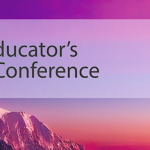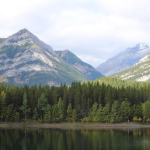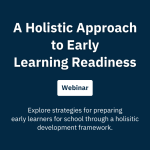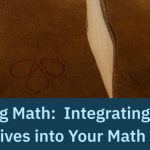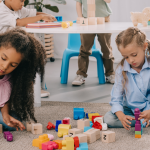Hosting Indigenous Guest Speakers and Events
Bringing Indigenous guest speakers and cultural events to your school is a wonderful way to introduce students to the rich traditions, knowledge, and perspectives of Indigenous Peoples. Organizing these visits requires careful planning and respect for Indigenous cultures. Here are some tips to help you successfully host Indigenous guest speakers and cultural events.
Build Relationships With Indigenous Communities
Before inviting a guest speaker or planning an event, it’s essential to build relationships with local Indigenous communities. This step shows respect and helps ensure the event is meaningful for everyone.
Tips for building relationships:
- Attend community events. By participating in local Indigenous-led events, you can learn more about the community and show your support.
- Reach out to local Indigenous organizations or community leaders. Introduce yourself and explain your interest in including Indigenous perspectives in your event(s).
- Ask for advice. When planning your event, ask Indigenous community members for their input on who might be a good speaker or what kind of event would be appropriate. This helps make sure the event is respectful and relevant.
If you’re unsure how to connect with local events, organizations, and communities, your local Friendship Centre is a great place to start.
Inviting Participation
Think about the nature of the event, the topic you want learners to explore, and the age of your learners. Before you begin inviting Indigenous guests, reflect on what you are looking for by extending the invitation. Once you are clear on your goals, here are some tips for reaching out:
Tips for inviting a guest speaker or planning an event:
- Not all Indigenous people are experts in all aspects of their culture. Choose a speaker with specific knowledge of the topic you want to cover. Ensure the speaker or event is appropriate and well-suited to the age level of the attendees.
- Plan to ask the person(s) to participate in your event in person, especially if you invite an Elder. You can learn more about the correct Protocols for inviting Indigenous Peoples to your event from your local Friendship Centre or Nation government office. Make sure you invite them to stay for the entire event and find out about the appropriate compensation you can offer for the knowledge they share.
- In many cultures, offering tobacco or burning sage, a practice known as Smudging, at the beginning of an event is customary. Ask if the speaker you’re inviting plans on holding ceremonies such as offering tobacco or Smudging. If so, ask what you can do to prepare the space accordingly.
- Elders may require additional considerations. Many Elders and Knowledge Keepers have busy schedules inside and outside their communities, so ask them to participate well in advance. Consider how you will organize transportation and seating and how you will accommodate other medical needs, health issues, or disabilities. When serving refreshments, it is customary to serve Elders first.
Planning and Facilitating the Event
Creating an environment that makes Indigenous guests feel welcome and respected is essential. This includes both the physical space and the attitude of everyone involved. As a facilitator, it’s your job to guide the experience, ensuring that everything runs smoothly and that learners are prepared to engage with Indigenous community members.
Tips for creating a respectful environment:
- Choose your event location. Think about whether it is culturally safe and accessible. This means considering people with mobility challenges and the historical context of a particular place as well as any technical needs the event may have.
- Set up the space thoughtfully. Arrange the room so everyone can see and hear the speaker(s).
- Make sure participants will be comfortable. Make sure there is water available for the speaker(s) and seating for Elders and anyone else who may need to sit.
- Greet and thank the speaker. Welcome the speaker when they arrive and introduce them to everyone. This helps the speaker feel comfortable and appreciated. Express your appreciation for their attendance and contributions to your event.
- Acknowledge the land. Begin the event with a territorial acknowledgment, recognizing that your school or event location is on Indigenous land. This shows respect for the history and presence of Indigenous Peoples. If your school does not have a territorial acknowledgement, you can learn how to write one here.
- Be conscious of time. Be mindful that it is disrespectful to rush Elders or other presenters. Consider leaving some wiggle room in your schedule. It’s also a good idea to make sure other members of the event team know that the schedule may change as needed.
Continuing the Learning
Hosting a guest speaker or cultural event shouldn’t be a one-time occurrence. To truly honour Indigenous cultures, it’s important to continue learning and incorporating Indigenous perspectives into your school and classroom.
Tips to continue the learning:
- Integrate Indigenous perspectives into your curriculum. Look for ways to include Indigenous knowledge and stories in your regular lessons, whether in history, science, art, or other subjects.
- Don’t stop at one event. Consider hosting regular Indigenous speakers or events throughout the year. Continue attending events in the Indigenous community as well.
- Encourage ongoing dialogue. Keep the conversation going by discussing Indigenous issues and perspectives in class. Encourage learners to explore these topics further on their own.
- Reflect on the event. Consider what went well and what you would do differently next time. Note anything you learned that you could apply when inviting speakers or hosting future events. Spend some time reflecting with your learners, too. Encourage them to think about what they learned, and invite them to share their ideas with a partner, through a reflection assignment, or in a class discussion.
Conclusion
Spending time with one another through shared events is essential to building respectful relationships that are the foundation of reconciliation. Hosting Indigenous guest speakers and cultural events is a valuable way of enriching your learners’ education and creating a more inclusive school environment. By building relationships with Indigenous communities, planning ahead, and reflecting on the experience, you can ensure these visits are meaningful and respectful. Remember, the goal is not just to have a one-time event but to create a lasting appreciation and understanding of Indigenous cultures and perspectives in your school.
References
First Peoples’ Cultural Council. (n.d.). Working with Elders. https://fpcc.ca/wp-content/uploads/2021/05/FPCC-Working-with-Elders_FINAL.pdf
Northern College Indigenous Services & Initiatives. (2022). The four sacred medicines. Retrieved May 26, 2022, from https://www.northernc.on.ca/indigenous/four-sacred-medicines/




